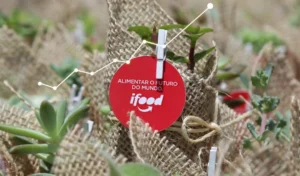Discover some simple actions we can adopt to make the most of our food
Wasting food is not always synonymous with buying more than we need and then throwing the excess away. Snubbing ugly fruit or eating larger portions than we should also count, you know?
This is a serious problem all over the world: about one third of food produced for human consumption is wasted or lost, according to the UN (United Nations). This means 1.3 billion tons per year — if just a quarter of that were saved, for example, it would be enough to feed 870 million hungry people, according to the organization.
When food is lost between harvest and retail, it is called loss, explains the FAO (Food and Agriculture Organization of the United Nations). And, when they are unused in retail and in our homes, it is waste.
This distinction is made so that farmers, producers, scholars and consumers know how to differentiate the different causes of the problem and understand how to combat it. Do you want to know how to reduce or (why not?) eliminate food waste at home? Check out these FAO tips for simple attitudes that we can all adopt to avoid throwing away food:
Plan meals
The first step to not wasting food is to only buy what you need. To do this, plan your meals for the week and make a shopping list instead of buying on impulse. It's a great way to not waste food or money.
Buy the ugly ones
Don't judge food by its appearance, warns the FAO. Fruits and vegetables that are oddly shaped or bruised are often thrown away at the market because they do not meet aesthetic standards that have nothing to do with quality. The fruits have the same flavor, and the ripe fruits can be used to make smoothies, juices and desserts.
Organize the fridge and closet
To make sure you don't forget to eat what was purchased the longest ago, move older items to the front of the cupboard or refrigerator and new items to the back. It's always a good idea to use airtight containers to keep opened foods fresh in the refrigerator and close packages tightly to keep out insects.
Beware of gluttony
The food left on the plate also goes to waste. To prevent this from happening, FAO's tips are: at home, put smaller portions on your plate; At the restaurant, share the meal with someone so you don't throw anything away.
Save leftovers
If you can't eat everything you cooked for a meal, freeze the portion or use the leftovers as an ingredient in another dish.
Donate food
If you don't intend to use a food that is about to expire soon, donate it to a food bank. And find out if you can donate meals and food to someone in your neighborhood.
Our purchasing decisions can also help combat food loss. FAO's tip is to support local producers whenever possible. This way, you support family farmers and small businesses in your community and help combat losses from farm to retail. And it also does its part to reduce air pollution, as producers reduce delivery distances, carried out in trucks and other vehicles.


